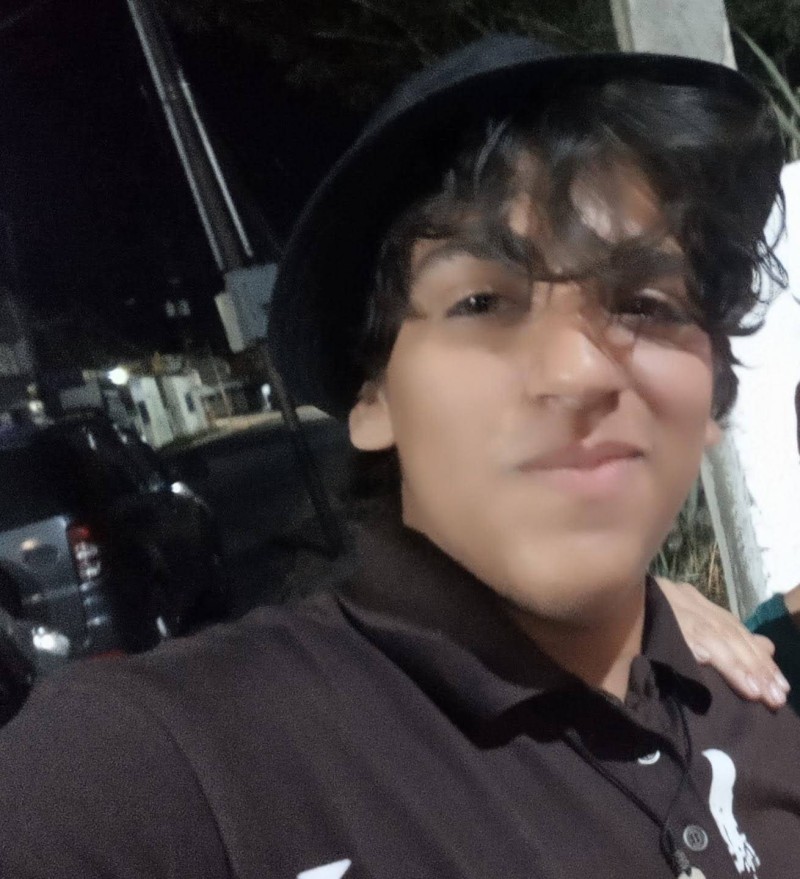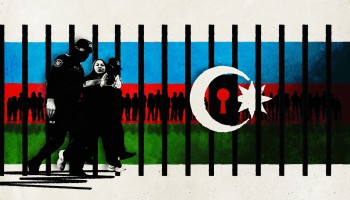The three teenagers wept as Judge Keidimar Ramos Castillo laid out their only two options: plead guilty to terrorism and incitement and face six years in prison, or stand trial and risk a decade behind bars, where they have already been beaten, tortured, and deprived of food and medication.
Their shocked mothers watched the cold, mechanical process in silence. They had expected their children to be released during the Oct. 2 hearing, like 86 other teenagers were shortly after being detained for protesting alongside thousands of other Venezuelans against Nicolás Maduro’s declared victory in the July 28 election, which most of the world viewed as rigged.
When the judge finished, the three teens, aged 15 to 17, began to plead for mercy, screaming and sobbing as they assured the court they were not guilty. The stunned mothers also burst into tears. The judge didn’t even blink.
The teens were marched out of the courtroom and back to their cells.
Over the past few weeks, hearings like this for about 50 teenagers have taken place throughout the country, mostly conducted online. Often, the judge and the lawyers were in one city, the teens in another, and the parents in a third, seeing their sons and daughters only as pixelated images on a screen.
After compiling school records, letters of good conduct, and personal references — files that could help prove their children’s innocence — the mothers say the judges didn’t even look at them. Instead, their children were marched off to trial, denied the right to private lawyers, and left with public defenders who did little more than stand beside them in court.
The public defender barely spoke, the mothers complained in interviews with OCCRP. Her defense lasted maybe two minutes and she whispered. They could barely hear her.
‘Shockingly Brutal’
Reports indicate that 24 people were killed in the massive protests that erupted when the electoral commission, controlled by Maduro loyalists, declared him the winner just hours after the polls closed, without releasing the voting tallies.
What followed was a brutal government crackdown against opponents, which Human Rights Watch described as “widespread human rights violations against protesters, bystanders, opposition leaders, and critics,” including killings and arbitrary detentions and prosecutions.
“The repression we are seeing in Venezuela is shockingly brutal,” said Juanita Goebertus, Americas director at Human Rights Watch, in the press release.
According to Venezuelan authorities, over 2,400 people were arrested in connection with the protests. Most remain detained in Venezuelan prisons, where basic human needs — like a place to sleep or access to a restroom — come at a price.
Families are forced to pay bribes to ensure their loved ones get food or medical care. Hammocks in the cells cost $5 to use, an impossible sum for many. Mothers must pay for their children to receive medicine, or the medication will "disappear" before it reaches them.
Since the end of July, the parents have been able to see their children once or twice.

Mariana is among dozens of teenagers who have been jailed and accused of terrorism.

Luis has been beaten in jail.
Cristian has been tortured in jail. He has marks of electric shocks on his chest.
Birthday in Prison
The Organization of American States (OAS) released a statement on Thursday condemning “in the strongest terms” what they said was the kidnapping and torture of minors.”
“The audios and reports from torture centers in Venezuela are chilling: minors are tortured with electric shocks, beatings, deprivation of food, and even sexual abuse,” the statement said.
Venezuelan officials are “violating all international conventions on human rights and lowering the limits of humanity and decency to the worst level of barbarism,” it added, calling for the teenagers to be immediately released.
The Venezuelan government did not immediately respond to a request for comment, but last month Attorney General Tarek Saab, defended the government’s conduct in a televised interview, denying that it had “detained children.” He called these “accusations of the extreme right,” and insisted that only minors under 10 years old qualified as “children.”
Over 50 still detained teenagers and their families were eagerly awaiting this month's hearings, hoping for freedom.
Lireni Molina even decorated her son Orlando’s room with balloons and a banner over his bed. “Welcome home, Orlandito,” it read. He had turned 16 in prison.
Orlando turned 16 in jail. His mother decorated his room with balloons and a welcome banner, hoping he would be released in time to celebrate.
When the judge laid out their two options, her heart sank. That was more than 10 days ago. She hasn’t been able to enter Orlando’s room since then. The banner and balloons are still there.
The mothers insist their sons and daughters are innocent, victims of a state desperate to control its citizens. They claim the charges against the teenagers are based on lies.
In several cases, the mothers say they had no idea where their children were for days after they were arrested. One even went to the morgue, desperate to find out if her son was dead, only to discover later that he had been detained at a police station that repeatedly denied holding him.
Requests for forensic examinations to prove the abuse suffered by the detained children have been ignored, just like their other pleas.
But the mothers refuse to give up. Eight of them have formed an unofficial support group and meet in a modest home in central Venezuela. Though they didn’t know each other before, they now find themselves bound by the same nightmare. Each mother’s story mirrors the others, and each heartbreak echoes in the room. The weight of despair grows heavier with each passing day.
Botello said her jailed son Alejandro had told her something no mother wants to hear from a teenager: “Mom, your God doesn’t hear me anymore.”








